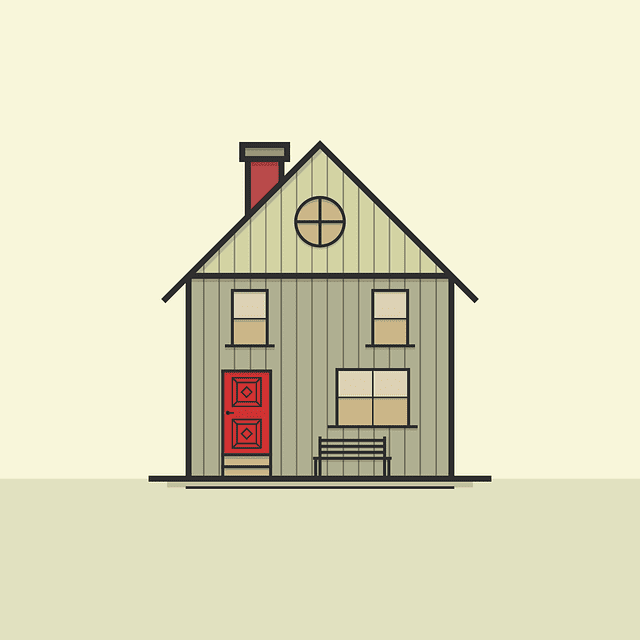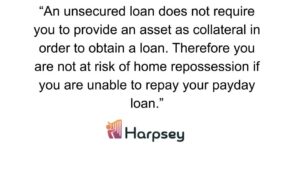No, a payday lender cannot repossess your house. This is because a payday loan is an unsecured loan. An unsecured loan does not require you to provide an asset as collateral in order to obtain a loan. Therefore you are not at risk of home repossession if you are unable to repay your payday loan.
However, there are significant negative consequences if you find yourself in this situation, including negative impact to your credit score. In this guide we will take you through the answers to common questions about house repossession, as well as the consequences of being unable to repay your payday loan.
Why Can’t A Payday Lender Repossess My House?
A payday lender cannot repossess your home because a payday loan is an unsecured loan, meaning that you do not have to provide an asset as collateral, such as your home, to obtain the loan. So you are not at risk of home repossession if you are unable to repay your payday loan. However, there are significant negative consequences if you find yourself in this situation.
When Can A Lender Repossess My House?
A lender can repossess your house if you take out a secured loan and use your house as collateral. The most common types of secured loans are mortgages and car loans. Payday loans are never secured loans.
In the case of secured loans, collateral can take the form of any significant financial asset that you own. If you fail to pay back this loan, the bank can seize your collateral as payment. For example if you are unable to pay back a loan where you have used your house as collateral, then it can be repossessed. This repossession would stay on your credit report for up to seven years.
When you take out a secured loan, the lender puts a lien on the asset you offer up as collateral (such as your home). Once the loan is paid off, the lender removes the lien, and you own your asset free and clear.
Because your assets can be seized if you don’t pay off your secured loan, they are arguably riskier than unsecured loans.
How Do I Stop A Lender Repossessing My House?
You can stop a lender from repossessing your house if you are proactive about the situation and keep in regular communication with your lender. There are several steps that you can take if you are worried that a lender will repossess your house:
- Communicate with your lender. As soon as your financial situation makes paying your mortgage difficult, get in touch with your lender. If you reach out to your lender, and don’t wait for them to get in touch with you, they will be more likely to regard you as a trustworthy and responsible borrower. By doing this, they may be more lenient in giving you time to rectify the situation and find the finances necessary to make your mortgage payments.
- Pay what you can. Even if you can’t repay the outstanding sum in full, making whatever payment you can shows the lenders that you are taking steps to improve the situation. It also proves that your mortgage issues are a priority, thus building trust with the lender.
- Seek help from friends and family. While it is often uncomfortable to ask for financial help from friends and family, this may be a good short-term solution to repayment issues. If you have a trusting relationship with friends/family, and they’re in a financial position to offer it, you should consider asking them for an interest-free loan, or even a monetary gift.
- Sell your property. This may seem far from ideal. However if your financial situation is unlikely to change, and you have alternative living arrangements on hand, then it may be a good idea to sell your home. This way, assuming the house’s value covers the outstanding debt, you may be able to stop repossession and sell your home on your own terms.
What Can A Payday Lender Do To Recover Payments?
If you cannot repay your payday loan, payday lenders can enforce wage garnishment, lawsuits, and debt collection in order to recover the loan.
Your lender also has the right to impose late fees and to increase the interest on your loan if you default on payment. Given that the average APR on a payday loan is 400%, encouraging even higher interest will be very pricey.
For a long outstanding debt, you may be given a court summons as an attempt to recover the money. Lenders are usually able to sue to collect the money that you fail to pay back to them.If you don’t dispute the lender’s claim, or if they win regardless, a judgment or order will be entered against you by the court.
Additionally, if you do not pay back your debt, your credit score will absorb some of the damage. Your score will be lowered once you default on payment, which will show creditors that you are unreliable at repaying debts. This will minimize your chances of securing a mortgage, loan, or even phone contract in the future.
What Should I Do If I Can’t Repay My Payday Loan?
If you realize that you will be unable to meet your scheduled payday loan repayment, you should ensure that you contact your lender immediately. Your lender will try to find an arrangement that makes it possible for you to repay the loan. You may be able to agree to a payment schedule that is more affordable for you.
Additionally, you could approach friends or family for some money to help you in the short term before you get back on your feet. While this can be stressful, loans from family and friends will not negatively impact your credit score in the way that missing payday loan repayments will.
You should only take out an amount of money that you know you will be able to pay back. Note that a payday loan should only be used as a short-term fix for an unexpected bill, or just to tide you over before your next payday.
In situations like inability to repay, it is advisable to seek advice from a nonprofit credit counselor, bankruptcy attorney or legal aid center about your next moves.


